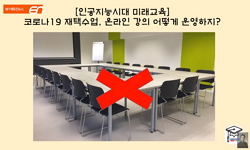The core goal of security is to protect the people, territory and sovereignty from threats. Since the nation's threats include both traditional and non-traditional threats, the military should also ensure the security of the nation and its people from...
http://chineseinput.net/에서 pinyin(병음)방식으로 중국어를 변환할 수 있습니다.
변환된 중국어를 복사하여 사용하시면 됩니다.
- 中文 을 입력하시려면 zhongwen을 입력하시고 space를누르시면됩니다.
- 北京 을 입력하시려면 beijing을 입력하시고 space를 누르시면 됩니다.

대규모 감염병 발생 시 국방의 역할: COVID19 사태를 중심으로 = The Role of National Defense in the event of a Massive Infectious Diseases
한글로보기https://www.riss.kr/link?id=A106981297
- 저자
- 발행기관
- 학술지명
- 권호사항
-
발행연도
2020
-
작성언어
-
-
주제어
비전통위협 ; 비전통안보 ; 감염병 ; 코로나 ; COVID19 ; Non-traditional threat ; Non-traditional Security ; Pandamic ; Corona
-
KDC
300
-
등재정보
KCI등재
-
자료형태
학술저널
-
수록면
1-25(25쪽)
- DOI식별코드
- 제공처
- 소장기관
-
0
상세조회 -
0
다운로드
부가정보
다국어 초록 (Multilingual Abstract)
The core goal of security is to protect the people, territory and sovereignty from threats. Since the nation's threats include both traditional and non-traditional threats, the military should also ensure the security of the nation and its people from these diversified threats. Thus, the task of protecting the people from national disasters, such as the outbreak of massive infectious diseases, which is one of the non-traditional threats, can be said to be one of the main roles of the military considering the concept of changed security and threats. Therefore, the military should pursue an adaptive military equipped with so-called versatility to respond to traditional security threats but also to non-traditional security threats. Disaster management systems, such as large infectious diseases, have five characteristics: boundary, uncertainty, specificity, interactivity and complexity. In response to disasters with these characteristics, the military should seek roles that can be played in the following three dimensions: performance of preventive measures before a disaster occurs, role as an initial response agency in case of a disaster, and restoration and reconstruction activities at the end of the disaster process, and support missions.
동일학술지(권/호) 다른 논문
-
- 국방대학교 안보문제연구소
- 이병철 ( Lee¸ Byong-chul )
- 2020
- KCI등재
-
- 국방대학교 안보문제연구소
- 전경주 ( Jeon Kyung-joo )
- 2020
- KCI등재
-
- 국방대학교 안보문제연구소
- 이상국 ( Lee Sang-kuk )
- 2020
- KCI등재
-
4차 산업혁명시대 중국의 해양 지능화작전 추진과 대응 방안
- 국방대학교 안보문제연구소
- 김현승 ( Kim Hyun-seung )
- 2020
- KCI등재




 KCI
KCI KISS
KISS







